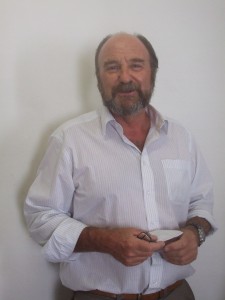
This past year has been a momentous year for our organisation as it celebrates 20 years since the very first Community Health Club was established in Makoni District in Zimbabwe. This was part of an early pilot project to determine whether our innovative CHC approach would achieve holistic development and the empowerment of women. Over the intervening years we have received a loud, clear and extremely positive response from countless rural communities, not only here in Zimbabwe but also from many countries across East, West and Southern Africa (as well as from Vietnam and Haiti where CHCs are also flourishing). Rural and urban communities across all of these diverse countries have wholeheartedly responded to the CHC approach that has impacted so positively on their families health and socio-economic well-being.
We also celebrate this past year as the best year ever for ZimAHEAD. It has been a truly remarkable year in which over 1,000 new CHCs were established with direct funding from USAID and ACF. We had a total compliment of 29 staff supporting this achievement (the largest number of staff ever) and yet managed to keep our per capita unit costs to under US$ 5 per beneficiary (actual US$4.42)
Whilst Zimbabwe AHEAD has been operating for 15 years in Zimbabwe, it is now being combined with Africa AHEAD, and as an international organisation we have now signed a joint MoU with the Permanent Secretary of MoHCC in Zimbabwe who have requested our support with the implementation of their national Community-Based Environmental Health Promotion Programme (CBEHPP). With this MoU in hand we are now in final stages of achieving the long-sought PVO status that will strengthen our international linkages and exposure as well as increase our potential funding sources. This combination of AfricaAHEAD (international with HQ in UK) and ZimAHEAD as ‘local partner’ will significantly enhance the potential for our growth within the WASH sector in the SADC region and beyond.
Another landmark this past year has been the publication of the National Water Policy of Zimbabwe (March 2013) that calls for CHCs to be established in every village and rural institution throughout the country. Meanwhile the Gates Foundation is currently carrying out an Evaluation of CHCs in Rwanda in order to determine the health and socio-economic impact of our CHC methodology. The timing for this Gates-funded Evaluation of CHCs is extremely exciting for us as an organisation because it comes at a time when the many fatal weaknesses in the alternative CLTS/CATS/ZimCATS approach (that has been championed by UNICEF and others for many years) are finally being exposed. Recent Evaluations of CLTS in Asia and Africa have indicated an almost zero health impact and a 92% failure rate (PLAN, 2014). These are clearly alarming and hugely disappointing outcomes for the narrow CLTS model that has been seen as the so-called ‘magic bullet’ by many within the WASH sector. But at least this negative outcome should stimulate increasing interest in our own far more holistic CHC model that is likely to ‘go viral’ when the results from the Randomised Control Trials of the CHC model come out from Rwanda later next year!
Finally within the broader global context, the past few years have been extremely thought-provoking for the WASH sector at large as a result of two hugely important ongoing areas of research, both of which have huge significance for the CHC approach:-
(i) Environmental Enteric Dysfunction (EED) otherwise known as Environmental Enteropathy, causes devastating stunting across the Developing World and is very much WASH related. EED occurs within the first 1,000 days of a child’s life (including the 9 months in its mother’s womb). In Africa it is estimated that as much as 40% of total population suffers the life-threatening and performance-limiting impact of stunting. Our twenty years of CHC experience leads us to firmly believe that the CHC approach can offer a very practical and low-cost means to address this devastating challenge at scale. We therefore intend to specifically focus on addressing EED in the years ahead and hope to collaborate closely with the SHINE programme (that is carrying out EED research in Zimbabwe).
(ii) Climate Resilience (CR): we already know that our well proven phase-two FAN Clubs (Food, Agriculture & Nutrition Clubs) provide a low-cost and extremely practical solution to address CR in most rural areas across Africa. We intend to expand this already very successful area of our work by engaging with a broader spectrum of development partners outside the WASH sector and beyond Zimbabwe’s borders into the greater SADC region at large.
The future thus looks increasingly bright for CHCs and Africa AHEAD. I want to most sincerely thank and congratulate all of our staff who contributed to such a remarkably productive past twelve months of highly successful operations.
